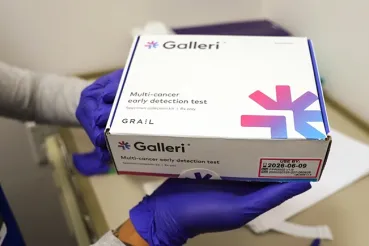What are some words you associate with cancer? Chances are “chemotherapy” is one of the first that comes to mind. But chemo is not always the first course of treatment.
In fact, sometimes chemo takes a back seat to other treatments that may have milder side effects. Thanks to recent advances, oncologists are now better able to tailor cancer treatment to each individual patient.
Treatment 1: Surgery
Surgery is an option for most cancers other than blood cancers, with specialized cancer surgeons attempting to remove all or most of a solid tumor. It’s an especially effective treatment for early-stage cancers that haven’t spread to other parts of the body.
In some cases, minimally invasive surgery may be an option. For example, thoracic surgeons often use video-assisted thoracoscopic surgery (VATS) to remove early-stage lung cancer tumors.
“While it depends on the size of the tumor and other factors, many patients with stage one cancers don't need any other treatment except for surgery,” says Marta Batus, MD, a medical oncologist at RUSH MD Anderson Cancer Center.
Treatment 2: Immunotherapy
Immunotherapy, a newer type of cancer treatment, uses IV infusions of medication to rev up the patient’s own immune system. Immunotherapy treatments can work across different cancer types and may be effective in treating even advanced and hard-to-treat cancers.
“Immunotherapy has definitely opened up more options for a lot of patients, and it is now the frontline treatment for certain patients,” Batus says. “Patients don’t lose their hair. They don't have nausea or vomiting. Most of the time, they experience minimal side effects, if any.”
Treatment 3: Targeted therapies
Oncologists use targeted therapies, also known as precision medicine, to tailor medications for each individual patient and cancer. A tumor or blood sample is tested to identify a genetic profile, guiding clinicians to administer medication that targets the genes causing the cancer.
Medications, delivered in pill or IV form, either destroy cancer cells or stop the cancer from continuing to grow, often without harming healthy cells.
Treatment 4: Active surveillance
Active surveillance (also called watchful waiting) may be all that’s needed for certain types of cancers, particularly those that are at an early stage and growing slowly or not at all.
For example, doctors often recommend active surveillance for prostate cancer, which tends to grow very slowly. Doctors monitor patients’ prostate-specific antigen (PSA) with blood tests and monitor symptoms. If symptoms worsen or tests show that the cancer is growing more rapidly, they’ll discuss additional treatments.
“Often, patients who are receiving active surveillance have no symptoms and go on living their lives as usual,” Batus says.
Treatment 5: Supportive care
Supportive cancer care can be an effective complement to standard treatment, helping to minimize the physical and emotional stress of cancer treatment. For example, psychotherapy and massage therapy can help ease anxiety; acupuncture can be beneficial for pain relief; and nutrition counseling can help keep a patient from losing too much weight during treatment.




